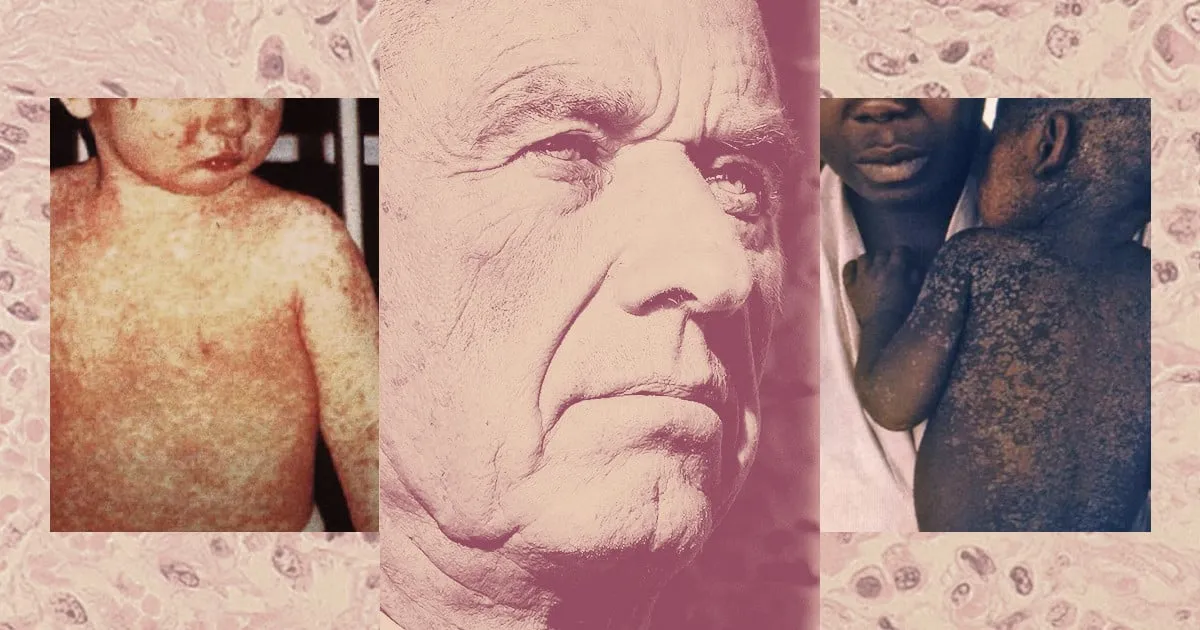
In a troubling development this week, leaders at the Centers for Disease Control and Prevention (CDC) instructed their staff not to disclose a critical assessment indicating a heightened risk of contracting measles in areas experiencing outbreaks, particularly where vaccination rates are low. Internal records reviewed by ProPublica reveal that the CDC had initially planned to communicate the importance of vaccination against this highly contagious and potentially deadly disease, which has already spread to 19 states.
A spokesperson for the CDC stated that the decision to withhold the assessment was made because it "does not say anything that the public doesn’t already know." The spokesperson reiterated that the CDC continues to advocate for vaccinations as the "best way to protect against measles." However, the agency's subsequent comments suggest a significant change in its long-standing messaging regarding vaccines, aligning with the views of Health and Human Services Secretary Robert F. Kennedy Jr., a noted critic of vaccines. The CDC now emphasizes that “the decision to vaccinate is a personal one,” mirroring a sentiment expressed in a column by Kennedy on the Fox News website.
This shift in messaging has raised alarms among public health experts. Jennifer Nuzzo, director of the Pandemic Center at Brown University School of Public Health, expressed her astonishment at the language used by the CDC. She highlighted that while no vaccine is without risk, the current measles outbreak is not a matter of chance. "We’ve already had more cases of measles in 2025 than we had in 2024, and it’s spread to multiple states. It is not a coin toss at this point," she stated. For years, the CDC had confidently promoted vaccinations, exemplified by campaigns like “Get My Flu Shot.”
Nuzzo emphasized the critical need for the CDC to provide more detailed information about the outbreak and the spread of measles. "The growing scale and severity of this measles outbreak and the urgent need for more data to guide the response underscores why we need a fully staffed and functional CDC and more resources for state and local health departments," she said.
Adding to the uncertainty, Kennedy's agency announced plans to eliminate 2,400 jobs at the CDC. When asked about Kennedy's influence on the decision to suppress the risk assessment, the communications director for HHS stated that the aborted announcement was a part of an ongoing effort to enhance communication processes. He reiterated that the CDC still recommends vaccination as the best defense against measles and stressed the importance of informed personal healthcare decisions.
The CDC's risk assessment was conducted by its Center for Forecasting and Outbreak Analytics, which was created to address the shortcomings revealed during the COVID-19 pandemic. This center operates similarly to a National Weather Service for infectious diseases, using data to predict outbreak trajectories. Although other risk assessments have been made public, the CDC chose not to release the measles findings, which indicated a low overall risk for the general public but a high risk in communities with low vaccination rates close to outbreaks.
The internal decision to cancel the rollout of the measles risk assessment surprised many within the CDC. An anonymous staff member described the cancellation as "not normal at all," noting that it was rare for a rollout plan to be halted at such an advanced stage. Anxiety among CDC staff has been mounting as concerns grow over whether the agency's public health messages will conform to the views of Kennedy, who has a history of promoting anti-vaccine sentiments.
The current measles outbreak has raised significant public health concerns, especially as the number of confirmed cases reached 483. With about 20% of unvaccinated individuals requiring hospitalization due to measles and a mortality rate of 1 to 3 per 1,000 cases, the urgency for vaccination cannot be overstated. Measles is highly contagious and can remain airborne for up to two hours after an infected person leaves an area.
In light of the alarming rise in measles cases, public health experts reiterate the importance of vaccinations as the most effective means of prevention. As the CDC navigates these changes under new leadership, the focus must remain on providing transparent and evidence-based information to empower individuals to make informed health decisions.